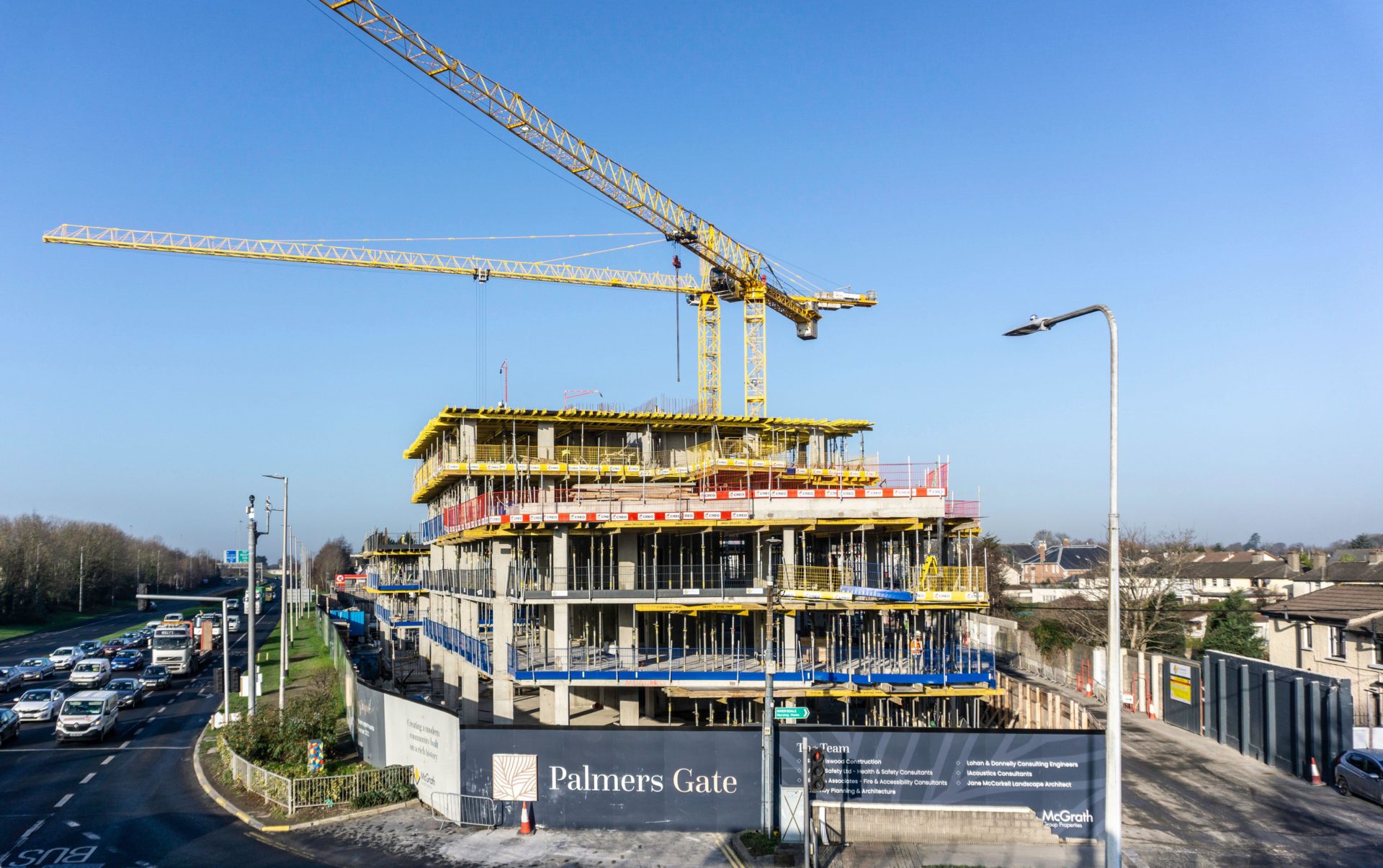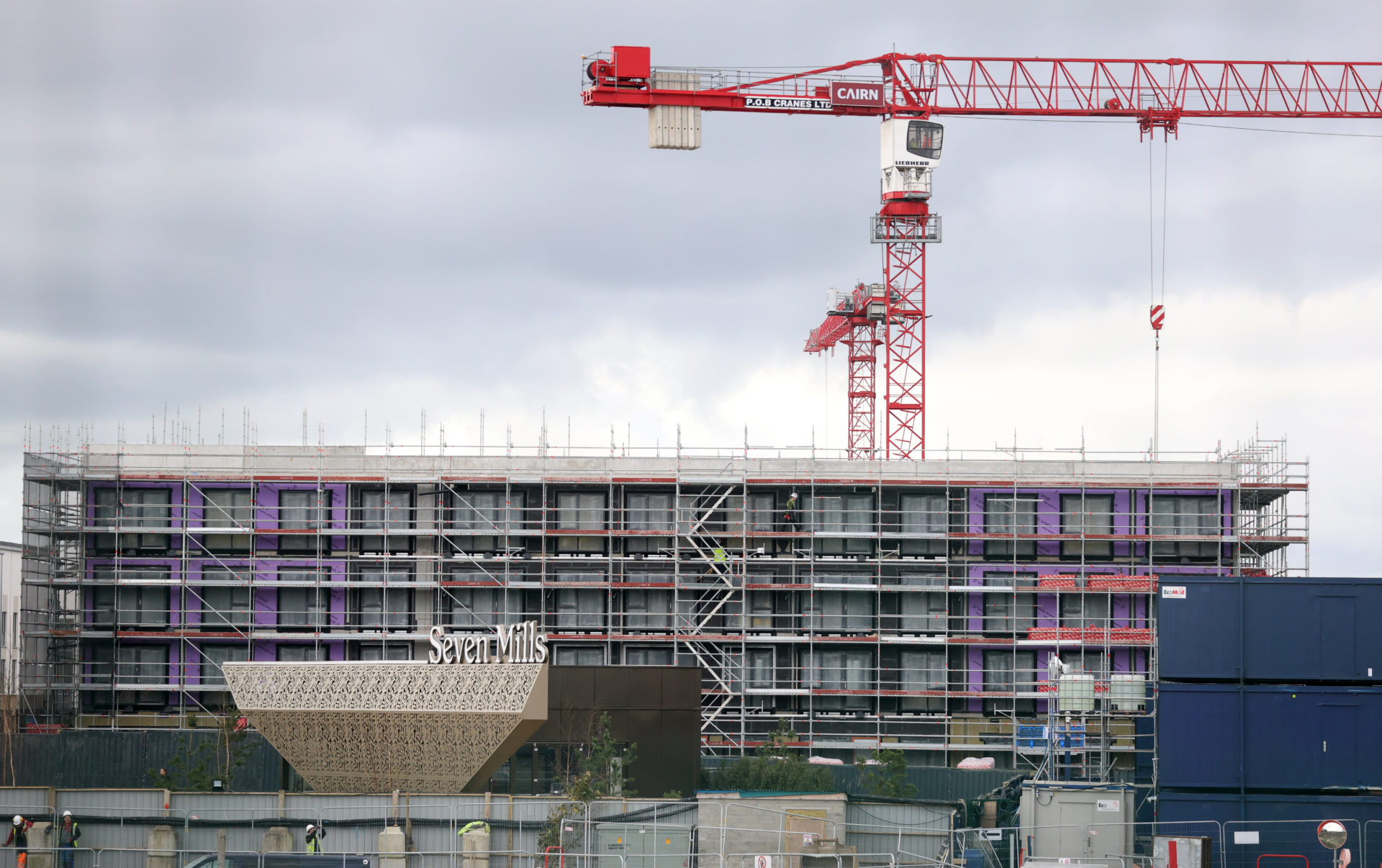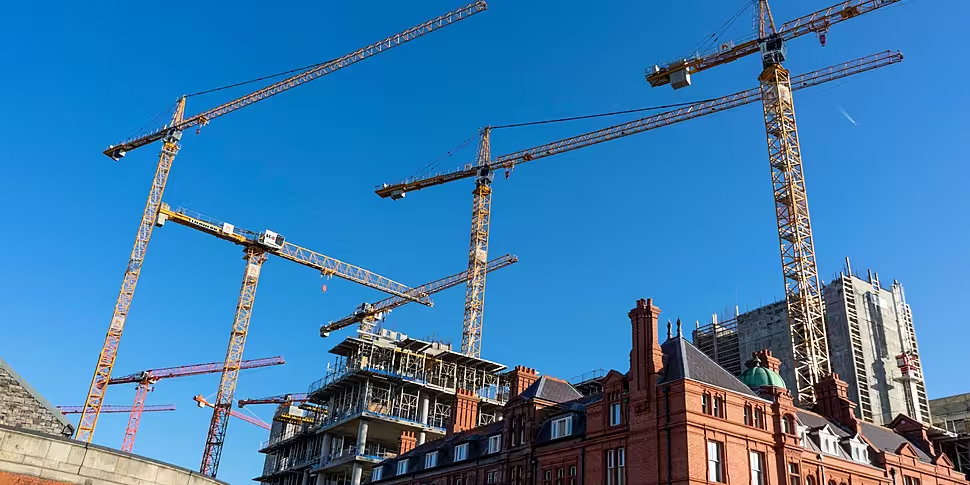Reducing the minimum size of apartments developers can build will be “very disruptive”, a planning expert has predicted.
Today, Cabinet will meet to discuss Housing Minister James Browne’s proposal that developers be allowed to build apartments that are 32 square metres.
The hope is that by reducing the size of apartments, it will mean more can be built - thereby boosting supply.
Apartments
On The Pat Kenny Show, UCD Professor Orla Hegarty said she believes the reforms will have a huge impact on the housing market.
“At the larger apartment level, there’s going to be a substantial decrease in the amount of floor area,” she explained.
“That’s going to filter down through the various sizes.
“From a three bedroom apartment, it looks like 14 square metres could be taken off.
“Just so people can visualise that, that’s about the size of a double bedroom coming out of a three bedroom apartment.
“So, all the other rooms will be squeezed up in order to still fit the number of rooms with a much smaller space.
“Down to a studio, which will be dropped down to 32 square metres, it is suggested.
“32 square metres is smaller than most hotel bedrooms… which would now become someone’s permanent home.”
 An apartment building under construction in Palmerstown, Dublin, Ireland. Picture by: noel bennett / Alamy. 24 January 2022
An apartment building under construction in Palmerstown, Dublin, Ireland. Picture by: noel bennett / Alamy. 24 January 2022A similar reform was introduced by then- Housing Minister Eoghan Murphy in 2018.
However, following the 2020 election, the reform was reversed by Fianna Fáil’s Darragh O’Brien.
Professor Hegarty believes the policy was cancelled because it was a “failure”.
“It’s very hard to see the justification for doing it again,” she continued.
“I pulled back my submission back in 2018 when we had the last round on reducing sizes.
“All of the things that were in that came to be; it delayed development, people who had permissions went back for more units and smaller spaces.
“So, it was very disruptive to the market.”
 Homes, apartments and duplexes under construction in Dublin 22. Picture by: Sasko Lazarov/© RollingNews.ie
Homes, apartments and duplexes under construction in Dublin 22. Picture by: Sasko Lazarov/© RollingNews.ieShe added that the promise that reducing minimum development sizes would make things more affordable “came to nothing”.
“Back at that stage in 2018, the department was saying, ‘If we make these changes, we’ll be delivering apartments for sale for under €300,000 in Dublin’,” she recalled.
“Now we have the department saying, in their own figures, they’re claiming it costs over €600,000.
“So, we’re seeing the same playbook; disruption, delay, uncertainty, more risk into the sector.”
Professor Hegarty continued that housing is “not a short-term thing”, adding that people could end up living in tiny apartments for generations.
“Viability for today, July 2025, [will still be] somebody’s home in 100 years time, still compromised,” she said.
“Still bad infrastructure.
“This kind of penny pinching and cutting corners will have a real impact on people’s lives.”
Main image: Cranes showing construction boom in Dublin City Centre. Picture by: fluffandshutter / Alamy









